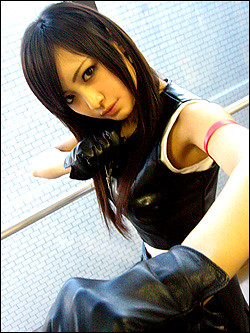
After finishing Michael Moorcock's The Dancers At The End Of Time (which was a rather sprawling read), I sifted for the number of books which I've bought but haven't read. I needed an easier read, something smaller in scope and scale, can be finished in a shorter time as I was in the midst of preparing for my film shoot. And voila, I picked Kazuo Ishiguro's Never Let Me Go, which I actually bought in '3 for 2' deal earlier this year, along with Gabriel Garcia Marquez's Love In The Time of Cholera (OMFG! GREAT BOOK!! MOST ROMANTIC BOOK I'VE EVER READ!) and Ian McEwan's Saturday (currently reading, second chapter, seems promising).
The last Ishiguro book I read was When We Were Orphans, six years ago. Fresh out of high school, I was untrained for something as subtle as that, and even though I remembered being slightly moved by its ending, and raving about it to my indifferent cousin, I cannot remember a single thing about it now. Er, it has to do with a private eye searching for his missing mom, right?
 Right, back to Never Let Me Go, a book I admittedly didn't expect much from. I already knew the basic premise about it after sifting through numerous book reviews and articles about it when it got nominated for the Booker Prize last year. If I knew nothing about the book at all, at least I would've given some kinda "HOLY SHIT! THIS BOOK IS ABOUT CLONES AND IT'S SORTA SCI-FI!" reaction halfway through the book, but unfortunately, that didn't happen. A spoiler-free book review is rarer than a film one.
Right, back to Never Let Me Go, a book I admittedly didn't expect much from. I already knew the basic premise about it after sifting through numerous book reviews and articles about it when it got nominated for the Booker Prize last year. If I knew nothing about the book at all, at least I would've given some kinda "HOLY SHIT! THIS BOOK IS ABOUT CLONES AND IT'S SORTA SCI-FI!" reaction halfway through the book, but unfortunately, that didn't happen. A spoiler-free book review is rarer than a film one.The entire story is narrated very wistfully by Kathy H., a 31 year old 'carer' who takes care of 'donors'. She remembers her childhood in a boarding school, Hailsham, where everything's spookily idyllic in a disturbing manner, with their teachers being deliberately cryptic while their clique-y fellow students being quietly hostile and asshole-ish, so all Kathy ever had as actual friends were Tommy (a boy with troubles controlling his temper, he gets into a Donald Duck-like berserk rage... and I think I've just became the first person to ever compare this character with Donald Duck, I rule) and Ruth (a Hermione-like bitch whom if I ever meet, would treat with scorn and disdain... despite the fact that I like Hermione, don't ask. Shh!). A friendship that would later turn into a love triangle... obviously.
Yet everything is slow and languid at first, with me getting increasingly bored about her school life in Hailsham. Not bored, more like annoyed. Unlike the people of Hailsham, whose emotions are usually repressed, I grew increasingly pissed.
"WHY ISN'T ANYTHING HAPPENING?" I shrieked, a quarter into the book, after reading about Tommy telling Kath his umpteenth mysterious meeting with his teacher and how the teacher continued being cryptic and mysterious.
Kath: What did Miss Lucy say?After being traumatized by Haruki Murakami's much celebrated trademark banal listlessness and sheer pointlessness in The Wind-up Bird Chronicles (my review here), I shuddered fearfully, not wanting to put myself through such torture again. Of course, it was unfair to me to jump through such conclusions merely because both authors were Japanese... granted, Ishiguro's more English than Japanese.
Tommy: That I shouldn't try so hard to be artistic even though it is necessary for me to be artistic even though my artistic works sucked, and that she said she was wrong for discouraging me blah blah.
Kath: But being artistic is important as our works will be accepted by the 'gallery'!
Tommy: I know, but she said I shouldn't be pursuing this since my art is rubbish, yet she says that she is wrong for-
I wanted to let go of Never Let Me Go (bad pun intended), but I continued reading, choosing not to allow myself to be blinded by prejudice and bigotry. Things admittedly pick up as the book went on, as I got increasingly drawn in by the soap opera-ish drama between the characters ("who will Tommy choose? The bitchy Ruth or the boring Kath?), and the mysterious fate that awaited them ("Do these clones possess superpowers and are created by evil scientists to take over the world? That is, like, Final Fantasy 7, baby!").
And then, I finished the book.
My life hadn't been entirely altered, mind you. (Perhaps Love In The Time Of Cholera had done too much of that earlier this year.) But the book lingered. I began to realize, gradually, that the subtle, understated manner employed by Ishiguro in this novel actually increased its haunting sense of helplessness. The most gruesome things that occurred were suggested and implied, not shown, thus making it even scarier since everything was left entirely to my imagination. And for a guy with a dark and twisted imagination like me, to truly visualize what actually happened to the clones made me shudder.
**SPOILERS BEGINS**
These clones are cloned so that they can donate their organs for unhealthy individuals. That is the SOLE reason of their existence. They just continue donating until they die (usually after the third donation).
Ew.
And yes, Ruth, Kath and Tommy are clones. And no, there's no happy ending. No sudden revolution led by our heroes to overthrow the oppressive system of the world. Kath eventually resigned from being a 'carer' as it was her time to start donating herself. There is no escape from her fate. Only resigned acceptance. Both Ruth and Tommy had already 'complete' (died) after their donations.
**SPOILERS ENDS**
 Never Let Me Go is very similar to Michael Bay's 2005 movie, The Island, (a pointless example to make since, judging by its box-office receipts, no that many people had bothered to see it last year) but without the action and explosion, and with more sadness, drama, wistfulness, helplessness, and hopelessness. Characters have more depth, becoming increasingly realistic and tragic as the story went on, but neither as pretty as Scarlett Johansson (I think...). The film and the book do have nearly identical concepts, just that they were executed much differently. The Island takes place in the near future, Never Let Me Go takes place in the 80s and 90s in an alternative world.
Never Let Me Go is very similar to Michael Bay's 2005 movie, The Island, (a pointless example to make since, judging by its box-office receipts, no that many people had bothered to see it last year) but without the action and explosion, and with more sadness, drama, wistfulness, helplessness, and hopelessness. Characters have more depth, becoming increasingly realistic and tragic as the story went on, but neither as pretty as Scarlett Johansson (I think...). The film and the book do have nearly identical concepts, just that they were executed much differently. The Island takes place in the near future, Never Let Me Go takes place in the 80s and 90s in an alternative world.Many have waxed poetry about the greatness of this simple book, about how, by witnessing the soullessness and impassiveness of the narrator and the other two major characters, the bleak circumstances they had to face, we become conscious of our mortality, of living life to its fullest, of making decisions and choices as far as we can still make them, it's about savouring the simplest and teeniest little victories in everyday life, of seizing opportunities before it is too late. Maybe all these may have applied if I were less of a humanist and needed a literary work like this to reaffirm my faith and appreciation of humanity and life.
But this book DOES linger. Never Let Me Go is actually pretty hard to let go. (bad pun intended. again)
Other reviews of Never Let Me Go:
Bibliobibuli: Questions About HumanityI'm a Bibliofriend, thus a link to Sharon's review is necessary. The book made Sharon cry when she was at the hairdresser's.
The Simon: Tears of A Clone: Kazuo Ishiguro's Never Let Me Go
Alan Williams sez that many are missing the darker implications about our conformist society in this book.
Blogcritics.org: Kazuo Ishiguro's Never Let Me GoPacze Moj's review of the book is interspersed with lyrics from The Mountain Goat's 'Dilaudid', gee, book review in the guise of a songfic? How utterly... ahem, experimental?
Blogcritics.org: Never Let Me Go - Clones In Love
Amy Welborn echoes my sentiment. Less experimental than the book review above, but straight to the point.
Tags: